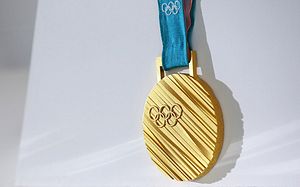With the PyeongChang 2018 Olympic and Paralympic Winter Games just around the corner, South Korea is now entering the final phase of preparation. To some South Koreans, the event is an opportunity to restore closer ties with North Korea, although outstanding issues and possible obstacles still exist between the two countries.
North Korea has refrained from further provocations for two months following the the launch of a Hwasong-12 intermediate range ballistic missile (IRBM) also known as KN-17, despite a series of recent developments which could have triggered further launches. In recent weeks, the United States redesignated North Korea as a state sponsor of terrorism and deployed three supercarriers near the Korean peninsula during U.S. President Donald Trump’s visit to South Korea.
South Korea has viewed the absence of provocations as a good sign as they prepare for the Olympic Games. Emphasizing that the PyeongChang Olympic Games should be an “Olympics for Peace,” the South Korean government has been urging North Korea to participate in the event. The South Korean Minister of Foreign Affairs Kang Kyung-wha stated on November 25 that North Korea’s participation in the Olympic Games will serve as a “special opportunity to promote reconciliation between South Korea and the North.”
North Korea also took part in the approval of the Olympic Truce for the PyeongChang 2018 Olympic and Paralympic Winter Games, a resolution which was approved by consensus at the United Nations General Assembly on November 13. Foreign Minister Kang said that North Korea’s approval shows “their intent and responsibility to contribute to the Olympics, regardless of the political situation.”
However, the recent and widely publicized defection of a North Korean soldier in the Joint Security Area on November 13 has sparked fear in the South Korean political sphere that it may jeopardize the current relationship with the North.
Some worry that the defection may trigger North Korea to protest against the South Korean loudspeakers installed along the military demarcation line, which is a sensitive issue for North Korea as well as a possible reason behind the most recent defection.
Meanwhile, there are rising voices in South Korea urging the government to strongly protest against North Korea’s violation of the Armistice Agreement during the defection by shooting rifles across the military demarcation line, as well as crossing it.
Nevertheless, the majority of experts argue that the defection will not significantly impact the current mood between the two Koreas, since it will be in the interest of the two countries to simply “overlook” the matter. One expert argued that North Korea has “kept silent on the matter ever since it occurred, because it simply does not want the public to know, and publicizing it only does harm to maintaining a solid regime.” For South Korea, it is “politically rational not to exacerbate the issue, particularly when they want to have North Korea join the Olympic Games.”
The most important issue at hand may be the upcoming Key Resolve/Foal Eagle (KR/FE) exercise, a U.S.-South Korea combined military exercise normally held every year in March. Considering past exercises, it is likely that the exercise will take place during the Paralympic Games, to be held from March 9 to 18. Many fear that North Korea may take the exercise as an excuse to not participate in the Olympics.
Some South Korean officials are calling for either canceling or postponing the military exercise. Seongnam City Mayor Lee Jae-myung made a statement on November 24 that the government should “positively consider canceling or postponing military drills in North and South Korea during the Olympics.” North Korea plans to hold its own round of military exercises as it enters the annual winter training cycle from December to March.
Although the South Korean government has not announced any official stance on the matter, experts argue that its decision may rely on external factors. Kim Dae-young, researcher at the Korea Research Institute for National Strategy, claimed that canceling or postponing the combined exercise may become difficult if “North Korea takes a provocative stance by conducting additional nuclear tests or missile launches,” adding that “the question of North Korean provocation and the intent of the U.S. forces are more important than our own will at the moment.”

































